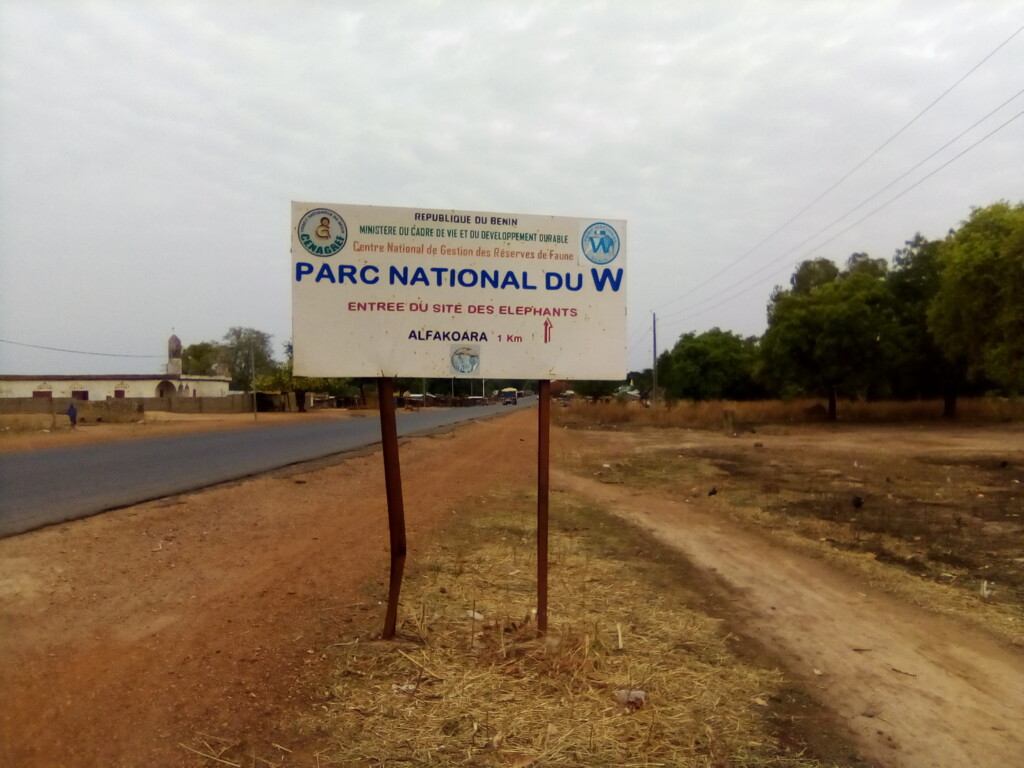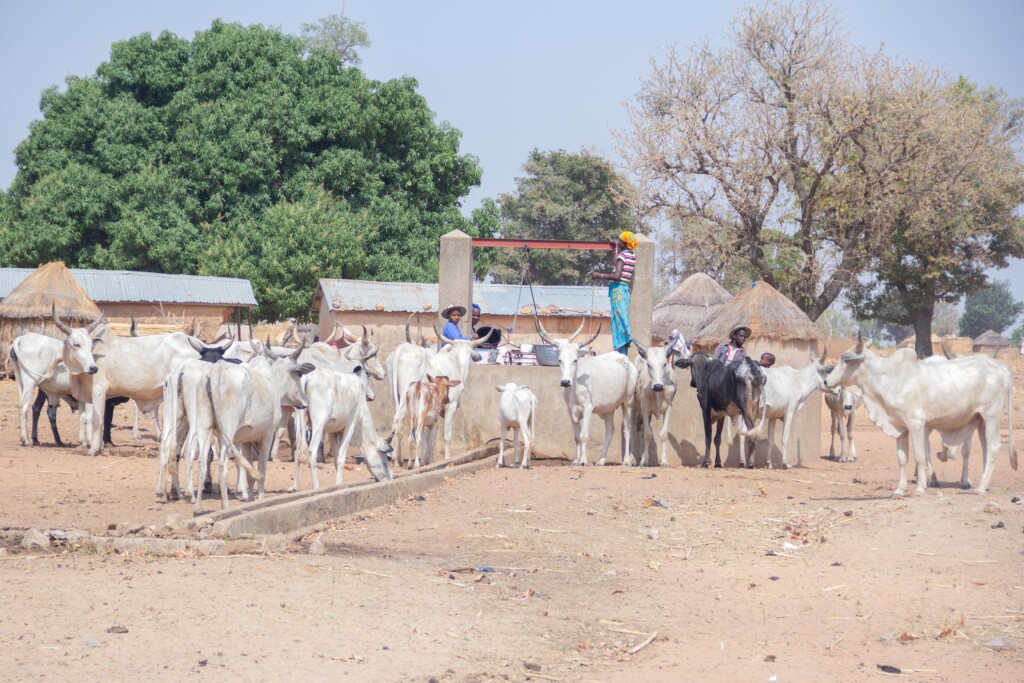On January 1 2024, insurgents linked to the al-Qaeda affiliated jihadist group Jama’at Nusrat al-Islam wal-Muslimin (JNIM) clashed with state troops near Banikoara in north-western Benin, resulting in five casualties. The violence is part of a broader trend which has seen the border area between the Kompienga and Tapoa provinces of Burkina Faso’s Est region and the Atakora and Alibori départements of Benin suffer attacks by violent extremist organizations since 2019. In Burkina Faso, the expansion of jihadist groups has precipitated a national security crisis, two military coups, and displaced at least two million people. In this briefing, IPIS outlines the drivers and enablers of conflict along the Benin-Burkina Faso border, and how Benin is tackling a potential jihadist spillover towards coastal West Africa.
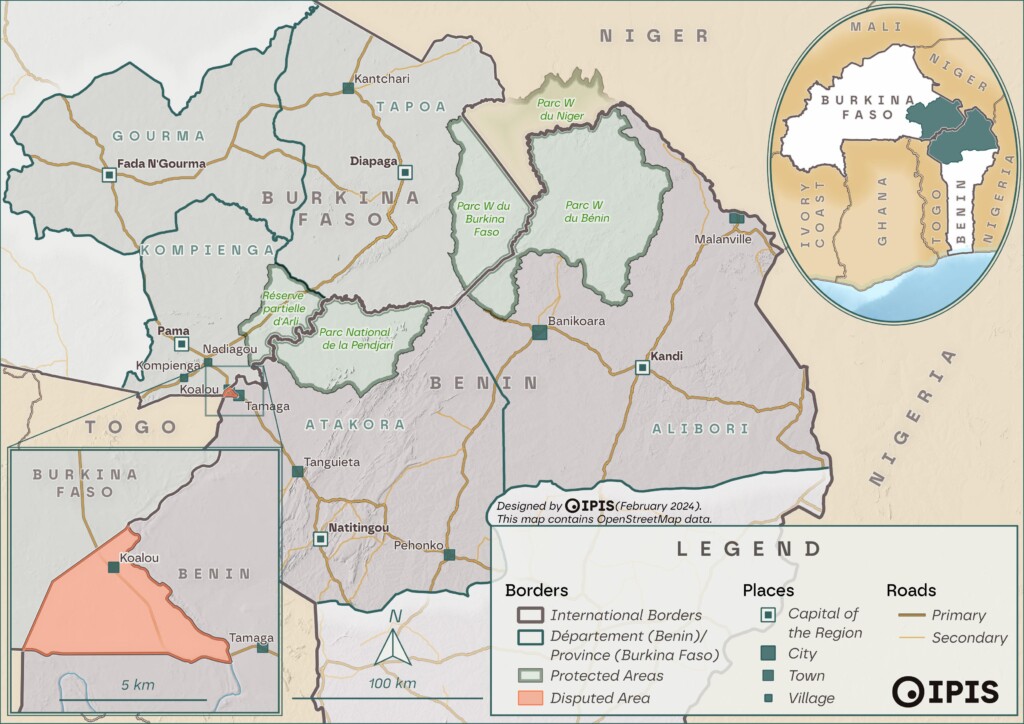
Driving conflict: land management and Burkina Faso’s governance crisis
The origins and drivers of jihadist expansion towards north-western Benin lay in the ongoing governance and security crises in Burkina Faso. In 2014, Burkinabé President Blaise Compaoré was ousted by a popular uprising, leaving the state ill-equipped to provide basic services in the rural periphery. This vacuum was gradually filled by jihadist groups, such as JNIM, which began pushing into Burkina Faso via the northern border with Mali in 2015. As of mid-2023, these groups had established control over large swathes of Burkinabé territories in the north, south and east, slowly encircling the capital of Ouagadougou.
The breakdown of an already limited state presence has exacerbated various communal issues, especially pre-existing land disputes between sedentary farming communities and nomadic herders. As elsewhere in the Sahel, these groups coexisted as pastoralists engaged in seasonal migration across the region. However, this cohabitation deteriorated due to development policies enacted under Compaoré since the 1990s, favoring land speculation and the expansion of farmland. Meanwhile, laws protecting pastoralist land claims, such as the 2002 Pastoral Policy Act, have remained largely unenforced.
Impeded in staking their claims to land, and disadvantaged by policies favoring agriculturalists, Burkinabé herders have seen pastures shrink and transhumance routes blocked, leading to crop destruction by itinerant livestock, and fueling tensions over land management between the two communities. Resolving such disputes has proved difficult. Continued political instability has reduced Ouagadougou’s ability to reach rural peripheries such as Kompienga and Tapoa, leaving land arbitration to farmer-dominated local mechanisms. Faced with an absent state, lack of political representation and unfavorable laws, some pastoralist communities have created self-defense groups, while others have turned to violent extremist groups for aid.
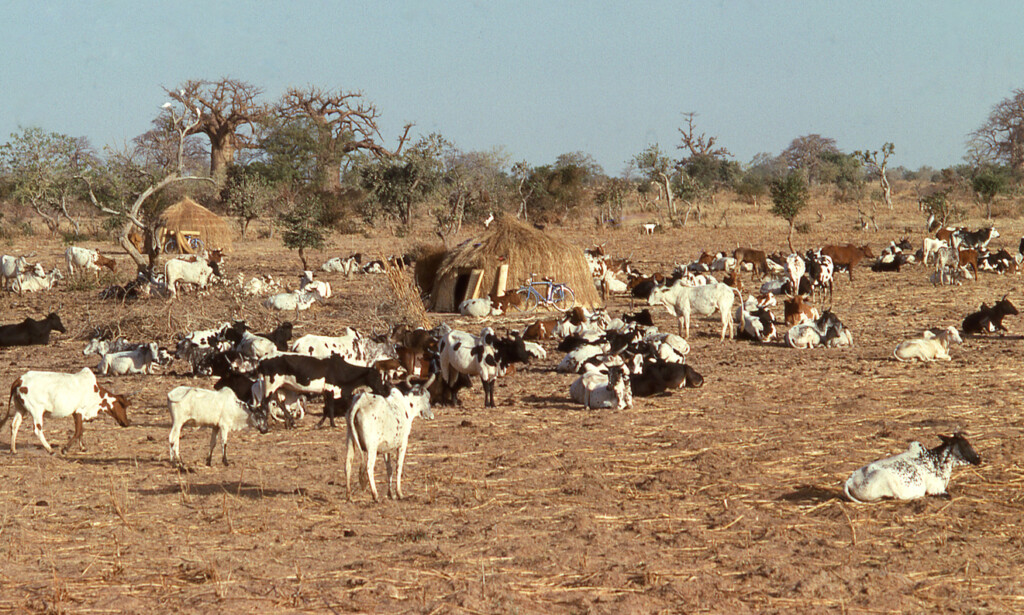
Protecting herds, dispersing farming communities and removing authorities in exchange for material support and harsh application of Islamic law, jihadists have offered rural communities a pragmatic alternative to the Burkinabé state. JNIM has been particularly successful as an alternative governance actor, its organization into decentralized katiba (regiments) allowing insurgents to tailor interventions to communal grievances. Local JNIM leaders often take on governance roles, collecting revenues through zakat (religious tax) and providing basic services such as justice dispensation through qadis (Islamic judges).
While the use of violent reprisals, kidnappings and economic blockades has kept many in Burkina Faso apprehensive of jihadist groups, JNIM’s governance approach has proven a durable strategy through which to undermine state control. Critically, the appeal of the jihadists reaches beyond pastoralists, jihadists having found partners across Burkina Faso in communities of miners who share similar feelings of grievance towards the state.
Burkina Faso’s security-based crisis response, led by a military junta since September 2022, has only exacerbated rural misgivings. Sidelining investments in services and dialogue, the junta’s war against jihadist groups has foregone resolving the rural grievances which form the basis of conflict, in favor of military expenditures. The Burkinabé government’s reluctance to open space for representation and engage civil society has been demonstrated by its suspension of the constitution, postponement of democratic elections, and alleged use of forced conscription to silence dissidents.
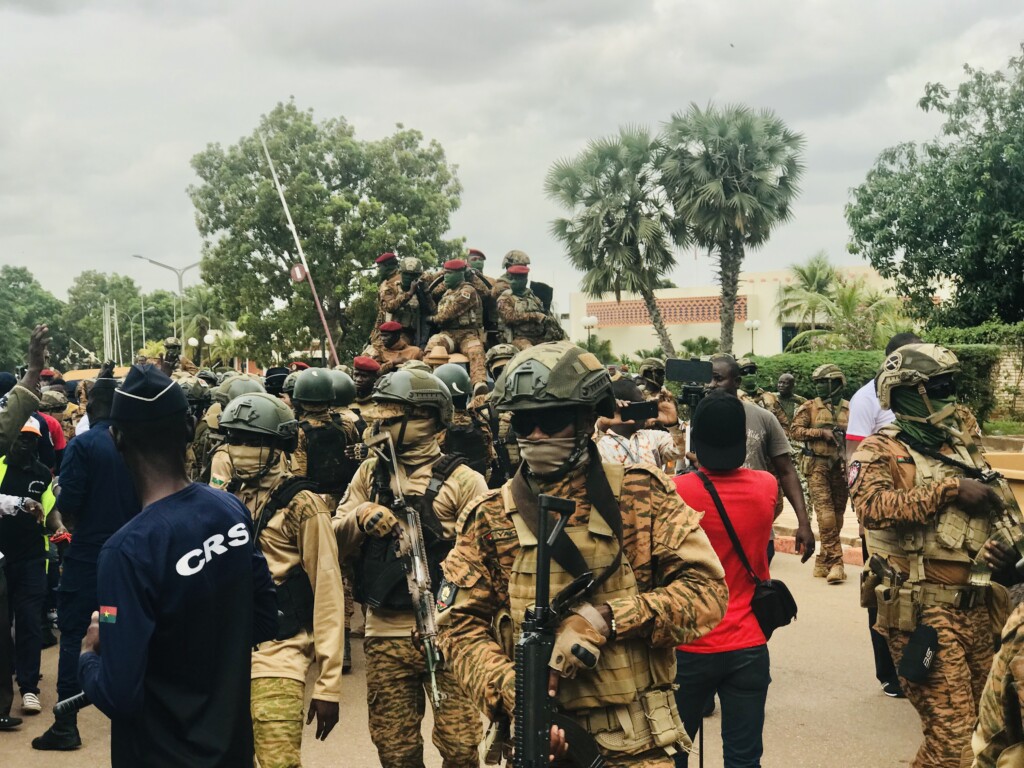
Viewing the jihadist insurgency as emanating from an external threat rather than an internal conflict, the junta has disrupted conflict between farmers and pastoralists by scapegoating pastoral ethnic groups, particularly the Fulani (Peuhl). As a result, the military has allegedly engaged in collective punishment of these groups and other civilians it suspects of supporting jihadists. Aiding the military are state-sponsored self-defense groups known as the Volontaires pour la défense de la patrie (VDP). Numbering around 50,000 fighters and primarily recruited from sedentary and non-Fulani communities, they are considered a crucial asset by the junta in its counter-insurgency response, offering a local alternative to the military’s limited reach and resources. However, reports allege human rights violations by the VDP, including against Fulani, as fighters abuse their authority to settle grievances over land rights. Despite outside criticism, the junta remains committed to its approach. Recent reports signal the arrival of 300 Russian “military specialists” from the Wagner-successor ‘Africa Corps’ in Burkina Faso, a reversal in policy; it may also be symptomatic of the junta’s weakening grip on security in the country.
These policies have yet to prove successful in neutralizing the jihadist threat in Burkina Faso, now the second terrorist insurgency worldwide. The vilification of pastoral ethnic groups, the alienation of rural communities through violence and the lack of attention to sustainably resolving grievances in the periphery provide a thriving recruiting environment for extremist groups. Along the Benin-Burkina Faso border, where state presence is already limited, such dynamics may further subvert state legitimacy, entrench jihadist presence, and increase the likelihood of attacks into Benin and other littoral states.
Enabling expansion: informal economies and the infiltration of the WAP park complex
Alongside their involvement in farmer-pastoralist land disputes, the expansion of violent extremist groups is enabled by informal spaces. This occurs through partnerships with criminal organizations operating along the disputed Kourou-Koalou corridor between Kompienga in Burkina Faso and western Atakora in Benin. Protecting networks trafficking in illicit goods such as weapons, poached animals, and narcotics, jihadists extract supplies and payments. However, they also target informal sectors critical to the livelihoods of local people to entrench themselves politically. Fuel smuggling, known locally as kpayo, is a salient example. In a region lacking sufficient legal petrol stations, the informal fuel trade is essential to the livelihoods of communities existing along the Benin-Burkina Faso border. The toleration of jihadist control over the fuel trade maintained the affordability and availability of smuggled fuel, for both civilians and fighters. Such dynamics enable jihadist authority over informal, but sometimes critical, local economies which subvert state control and entrench them in local service provision.
The gradual infiltration by jihadists of the W-Arli-Pendjari park complex has also enabled jihadist expansion towards Benin. Made up of various contiguous nature reserves straddling the entire length of the Benin-Burkina Faso border, it provides an ideal staging ground for raids into Atakora and neighboring Alibori, as well as the Savanes region of Togo.
Currently, both the Pendjari and W parks are managed on behalf of the Beninese government by the African Parks Network, an NGO which has made efforts to balance conservation with the needs of the local population. However, measures limiting the activities of local hunting associations (among others), such as the creation of hunting zones, periods and a list of huntable animals, have been exploited by jihadists operating on the Burkinabé side of the border. JNIM has engaged in open-access policies to park resources in return for toleration by locals alongside taxes, supplies and intelligence.
Jihadist management has enabled illicit activity such as the poaching of wildlife, a rise in informal artisanal gold mining, and has led herders to graze their cattle near or on the reserves. This last phenomenon may become increasingly common, as climate change in the Central Sahel decreases arable land and pushes farmers to compensate for decreasing crop yields through further settlement onto grazing lands, increasing land pressures between farmers and herders, and driving the latter closer to these reserves. Despite general distrust of jihadist groups, open-access policies allow them to pragmatically undermine the control of park managers and governments, consolidating themselves as an alternative governance actor on both sides of the border.
Benin: the need for a socio-military strategy
Responding to the threat emanating from Burkina Faso, Cotonou has emphasized a security-based counter-insurgency approach, spearheaded by ‘Operation Mirador’, a joint military campaign launched with Western and regional partners in 2022. The operation has featured the deployment of over 3,000 Beninese troops alongside the establishment of various military bases and intelligence posts in both Atakora and Alibori, particularly in areas surrounding the WAP park complex. So far this approach has contained JNIM, Benin’s military maintaining that no jihadist cells have yet established themselves in the country. Nonetheless, the frequency of jihadist-related incidents in its northern départements continues to rise. Over the course of 2023, ACLED recorded over 138 events linked to jihadist groups in Atakora and Alibori, compared to 67 the year before.
Despite the emphasis on a military approach, Benin appears to eschew replicating the same dynamics of alienation and polarization found in Burkina Faso. Indeed, military operations have been accompanied by efforts to address social and economic pressure points which could be exploited by jihadists. Atakora and Alibori are among Benin’s poorest départements, lacking basic infrastructure and services such as hospitals and schools. As part of Operation Mirador, the Beninese military has sought to address this through healthcare provision to communities, while the Agence Béninoise de Gestion Intégrée des Espaces Frontalièrs (ABeGIEF) and the Ministry of Interior have provided social services and educational campaigns to border populations.
Cotonou has also sought to diminish jihadist control over fuel smuggling by tackling the lack of formal access points. The government has made construction materials for gas stations tax exempt, and ordered the creation of 5,000 purchasable mini-stations in September 2023 to provide informal sellers with a formal source of revenue. These efforts coincide with a rise in fuel prices in Nigeria, owed to the removal of its fuel-subsidy in May 2023. In October 2023, the price of licit fuel in Atakora has fallen below that of illicit fuel, presenting an important chance to subvert a source of jihadist supplies and support.
The salience of Beninese pastoralist communities as potential spoilers has also been the subject of government policy. Looking to tackle regional transhumance as the conflict driver between herders and farmers, Cotonou has adopted a policy of gradually reducing long-distance livestock mobility. Its views are reflected in the provisions of the Pastoral Code and the 2019 Transhumance Management Plan, which prohibits cross-border transhumance and regulates cattle movement within the country. Benin is also engaged in an ongoing policy of ‘sedentarization’, looking to create dedicated zones for livestock production, thus providing incentives for herders to settle. Implemented in 2021, its long-term implications remain unclear.
These measures coincide with initiatives by major development organizations to invest in conflict prevention through local development. So far, GIZ has invested over 7.5 million EUR in a project supporting new models of cattle mobility for Beninese pastoralists. Meanwhile, the World Bank launched a 450 million USD project in 2022 to prevent the spread of conflict in the Gulf of Guinea by strengthening governance and economic opportunities in border communities. A recent UN study of drivers behind violent extremist recruitment in Africa recommended that, given the highly localized nature of recruitment strategies, successful counterinsurgency policies should rest on highly-localized programs involving civil society and aiming to restore confidence in the state.
Until now, Benin has managed to maintain control of its territory. Moving forward, it should seize on these developments, while forgoing a repetition of the crisis approach which has crippled Burkina Faso. Indeed, Cotonou should prevent gains made in addressing conflict drivers from being undermined by repressive counterinsurgency strategies, as allegations of arbitrary arrests and detentions of civilians have surfaced in the past. Looking forward, JNIM will continue to attempt attracting Beninese partners across Atakora and Alibori, deploying a mix of targeted violence against security services, and attempts to act as grievance handlers to do so. Emphasizing an inclusive bottom-up counter-insurgency response, centered on subverting the appeal of violent extremist organizations will be critical in preventing such strategies from bearing fruit.
Further Reading
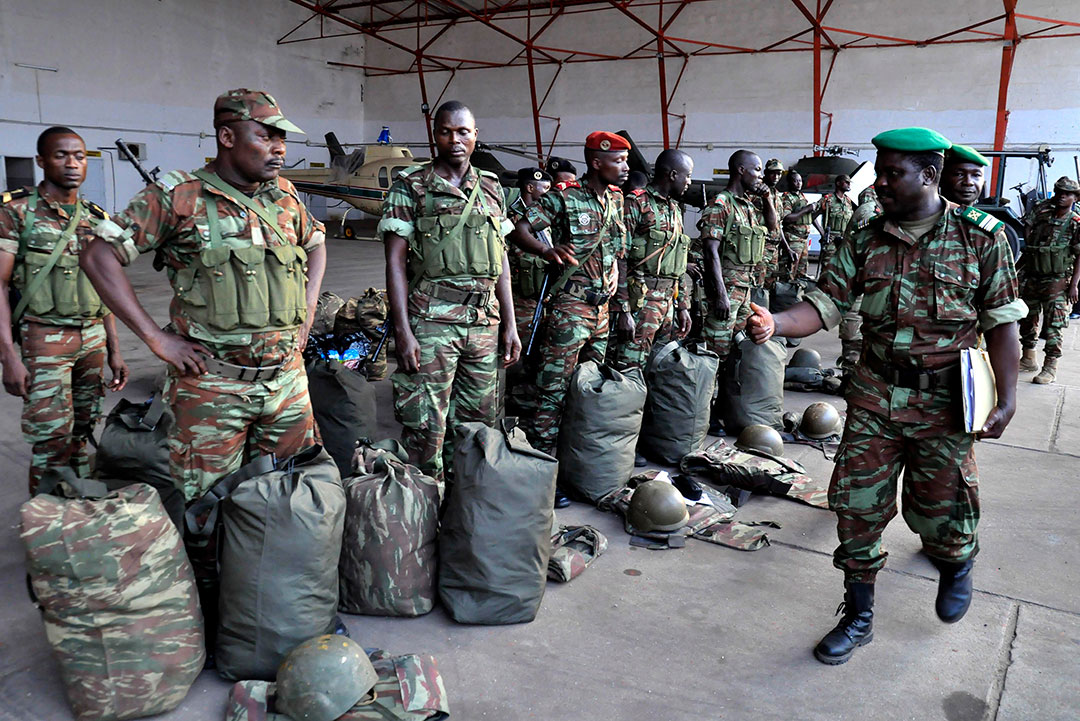
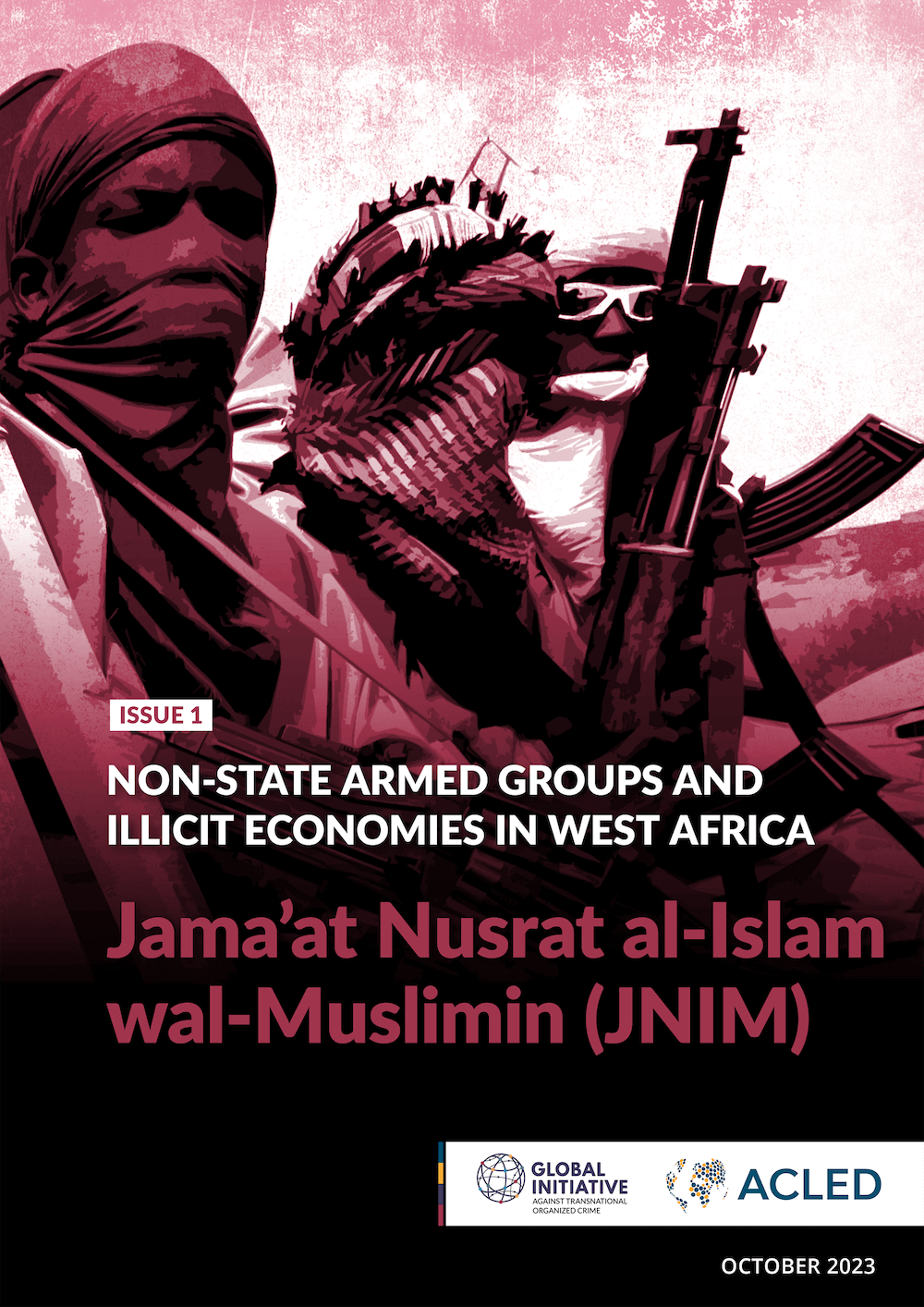

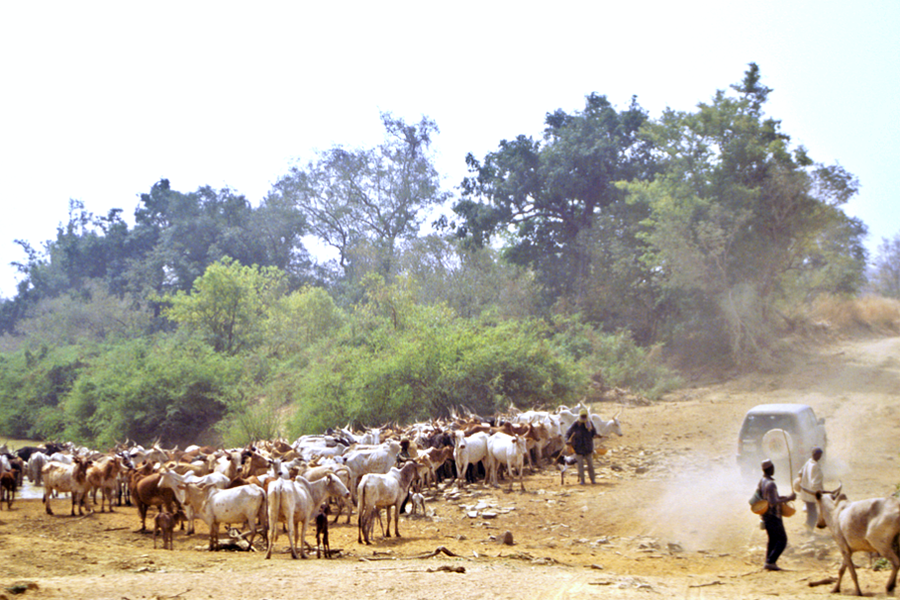
All articles and other news items referenced in this briefing come from third party media sources. Not being the author, IPIS is not responsible for the content of the news items or articles contained or referred to in this briefing.


